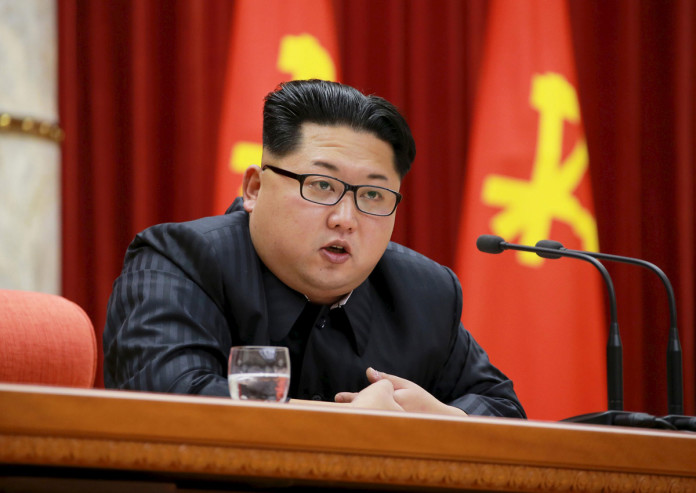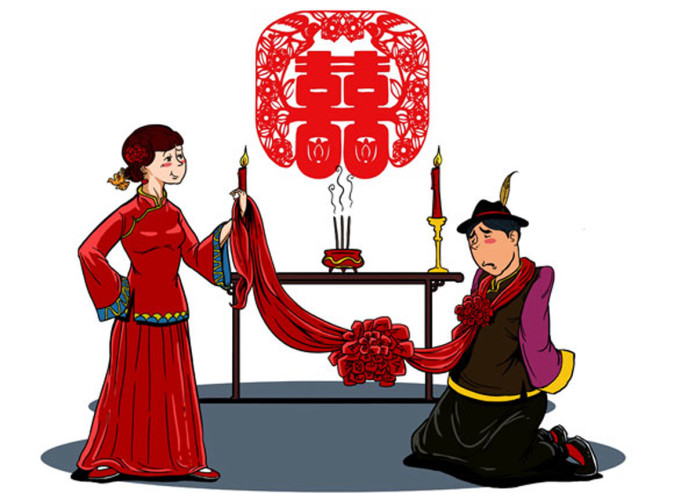The graduands come from the army, navy and the air force, and completed a rigorous 22-week training course to develop leadership and combat skills.
Source link
1,174 cadets graduate as SAF specialists
Singapore Airlines set to delist Tiger Airways
SINGAPORE, March 4 – Singapore Airlines Ltd
is set to delist Tiger Airways Holdings Ltd
as its takeover offer for the budget airline closes on Friday,
the company said.
Singapore’s national carrier said by Feb 26, it owned,
controlled or had agreed to acquire…
Source link
Football: Matic eyes Chelsea push for top four finish
Nemanja Matic claims Chelsea can still secure a top four finish if they can secure a fourth successive Premier League win when Stoke visit Stamford Bridge on Saturday.
The Blues’ win at Norwich this week moved last season’s champions into the top half of the table for the first time since August and within eight points of fourth placed Manchester City.
While their progress may look modest when measured in league places, Guus Hiddink’s team are undeniably on the rise and remain unbeaten in domestic competition since December.
The manner of recent performances has drawn comparisons to some of last season’s better displays and with the second leg of the Champions League last 16 tie with Paris Saint Germain to come next week, they have hit form at exactly the right time.
Chelsea interim manager Hiddink is remaining guarded about his side’s Premier League ambitions.
Blues midfielder Matic, though, believes that with the side now lying 10th, they can close the gap to the Champions League places if they can win all of their remaining 10 league games.
“It is very important to win games. We are a big team and have to keep doing this if we are to get closer to the first four,” Matic said.
“I know it’s very difficult to catch them but we will give our best to win every game from now on.
“I know that is very hard, maybe impossible, but in football anything can happen.” Chelsea will undoubtedly have one eye on the meeting with PSG when they will attempt to overturn a one-goal first leg deficit.
But centre-back Gary Cahill insists the impressive form of striker Diego Costa since Hiddink took charge means the club is more than capable of competing on all fronts.
“It is perfect timing to have Costa back to his very best with the big games we have coming up. He’s scoring goals and long may that continue,” Cahill said.
“I’m sure for a striker if you start scoring goals, you think you will score every time you get on the pitch. He is in that mind-set now.
“People aren’t talking about him not scoring for three-four games or whatever any more like earlier in the season. His record is great at the minute, so he feels confident.
“Ultimately for us if we have Diego in form and scoring goals, it’s great for the team.” Stoke arrive at Stamford Bridge in confident mood, having moved above Chelsea and up to seventh by beating Newcastle 1-0 on Wednesday.
That was a third successive victory for Mark Hughes’ side, who are only five points outside the Champions League positions.
Hughes spent three years at Chelsea as a player, and actually featured the last time they lost at home to Stoke, in a 1995 League Cup tie.
The Potters have not won a league match at Stamford Bridge since 1974, and their manager is keen to put that right.
“I had a great time as a player there when they were a mid-table team. You could see things were starting to roll in the right direction as I left,” Hughes said.
“Going back there, we haven’t had the best of times. We’re looking to change that. It will be a good match up.
“We’ve gone there in recent seasons and really haven’t tested them enough.” Stoke are stretched defensively as Phil Bardsley faces several weeks out with a calf injury, Geoff Cameron has an ankle problem and Ryan Shawcross is in Germany seeing a specialist about his back injury.

N. Korea leader orders nuclear arsenal on 'standby'
Seoul – Leader Kim Jong-Un has ordered North Korea’s nuclear arsenal readied for pre-emptive use at anytime, in an expected ramping up of rhetoric following the UN Security Council’s adoption of tough new sanctions on Pyongyang.
The North’s nuclear warheads must be deployed “on standby so as to be fired at any moment,” Kim was quoted as saying by the North’s official KCNA news agency on Friday.
He also warned that the situation on the divided Korean peninsula had become so dangerous that the North needed to shift its military strategy to one of “pre-emptive attack”.
Such bellicose rhetoric is almost routine for North Korea at times of elevated tensions.
While the North is known to have a small stockpile of nuclear warheads, experts are divided about its ability to mount them on a working missile delivery system.
Washington downplayed Kim’s threat as posturing.
“We have not seen North Korea test or demonstrate the ability to miniaturize a nuclear weapon and put it on an ICBM (intercontinental ballistic missile),” a US defence official told AFP.
Still, the official added, “our forces are ready to counter-eliminate strikes if necessary.” According to KCNA, Kim made his comments while monitoring the test firing of a new, high-calibre multiple rocket launcher on Thursday, just hours after the UN Security Council unanimously adopted the US-drafted resolution penalising the North for its fourth nuclear test in January and long-range rocket launch last month.
South Korea’s defence ministry said the North had fired half a dozen rockets about 100-150 kilometres into the sea off its eastern coast on Thursday.
In a clear threat to neighbouring South Korea, Kim said the new rocket launcher should be “promptly deployed” along with other “recently-developed” weaponry.
In the wake of the “gangster-like” UN resolution pushed by the United States and its South Korean ally, North Koreans are now “waiting for an order of combat to annihilate the enemy with their surging wrath,” he added.
The Security Council resolution adopted late Wednesday laid out the toughest sanctions imposed on Pyongyang to date over its nuclear weapons programme and will, if implemented effectively, apply significant economic pressure to Kim’s regime.
It breaks new ground by sanctioning specific sectors key to the North Korean economy – such as mineral exports – and seeking to undermine the North’s use of and access to international transport systems.
Kim said the resolution had opened a “very dangerous phase”, coming just days before the US and South Korea kick off annual joint military drills that Pyongyang views as provocative rehearsals for invasion.
The exercises involving tens of thousands of troops are scheduled to begin next Monday.
Tensions are likely to be further fuelled with the opening later Friday of formal talks between Seoul and Washington on the possible deployment of an advanced US missile defence system in South Korea.
The THAAD system fires anti-ballistic missiles to smash into enemy missiles either inside or outside the Earth’s atmosphere during their final flight phase.
The allies announced their intention to begin talks on its deployment following Pyongyang’s long-range rocket launch on February 7, which was seen by the US and its allies as a covert ballistic missile test.
The move is strongly opposed by China and Russia, with Beijing saying it would undermine its own nuclear deterrent and has the potential to “destroy” relations with Seoul.
Wednesday’s Security Council resolution ushered in the fifth set of UN sanctions to hit North Korea since it first tested an atomic device in 2006, and was the result of arduous negotiations between the US and China, Pyongyang’s sole major ally.
China had been reluctant to endorse harsh sanctions out of concern that too much pressure would trigger the collapse of the pariah regime, creating chaos on its border.
The sanctions Beijing finally signed off on are extremely tough on paper, but experts have warned that some of the language is vague enough to allow varying levels of enforcement.
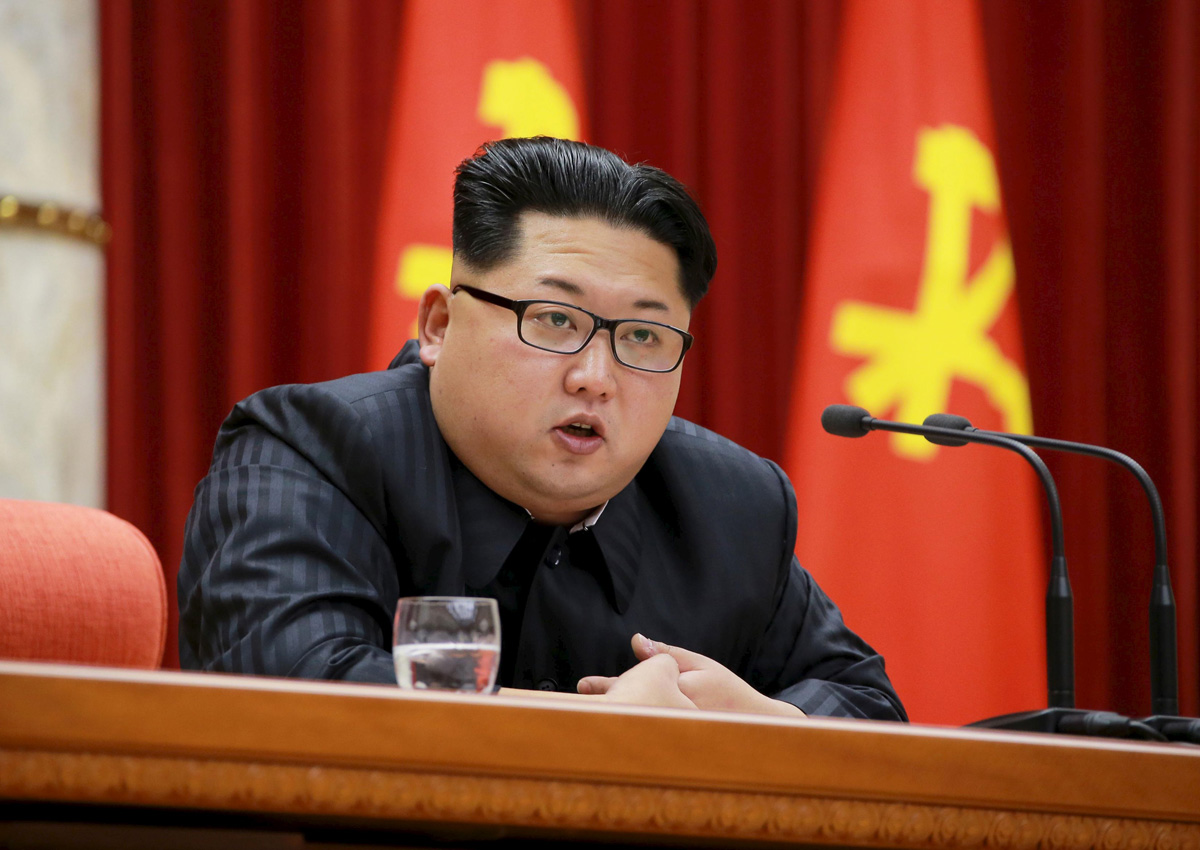
Five years on, closure has yet to come to Fukushima parents
Japan – Takayuki Ueno did not hesitate one moment to expose himself to high radiation five years ago while searching for family members swept away by the tsunami that triggered meltdowns at the Fukushima nuclear plant.
The bodies of his mother and daughter Erika were found. But Ueno braves radiation and bitter cold on beaches near the crippled plant to look for the remains of his father and son Kotaro, then three years old, to bring closure to his loss. “My highest duty as a parent was to protect my children, which I failed to fulfil. That makes me the worst parent, and I have to apologise to them,” Ueno, 43, told Reuters. “I was able to hold Erika in my arms and say ‘I am sorry’. I have yet to be able to do the same to Kotaro,” said Ueno, who lives 22 km north of the Fukushima nuclear plant.
A magnitude 9 earthquake and towering tsunami on March 11, 2011 killed nearly 16,000 people along Japan’s northeastern coast and left more than 2,500 missing.
The nuclear disaster at Tokyo Electric Power Co’s Fukushima Daiichi nuclear plant has made the experience of those who lived nearby particularly traumatic.
Norio Kimura, who lived 3 km south of the plant, had to choose between staying behind to search for his father, wife and younger daughter Yuna, or taking his mother and elder daughter away from spreading radiation. “I was torn by having to abandon my search and leave them behind… By the time I came back, the situation had become quite grim when it comes to finding them alive,” Kimura, 50, said.
HIGH RADIATION
The accident still hampers Kimura’s effort to find Yuna, the last family member missing, as entry into half of his hometown, Okuma, is restricted due to high radiation levels.
On a recent weekend, Kimura and a dozen volunteers led by Ueno, combed through piles of debris on a windswept Okuma beach for any signs of Yuna. They are allowed to enter the area up to 30 times a year and stay for up to five hours per visit.
As they dug through heaps of dirt mixed with driftwood, blocks of concrete, utility poles, crooked iron pipes and clothes of all sizes and colours, a dosimetre emitted high-pitched beeps. At one point, it showed six microsieverts per hour, 100 times as high as radiation levels in downtown Tokyo.
That does not shake Kimura’s resolve. “I’ll keep on searching until I find her,” Kimura said, adding that even then he might keep looking for other missing victims.
Such tenacity can be partly explained by views of life and death widely held in Asia, experts say. “Once dead, a body itself is often seen and treated as an object in the West,” said Shinichi Niwa, adjunct professor of psychiatry at Fukushima Medical University’s Aizu Medical Center. “In Asia, there is a strong belief that one’s spirit stays with the body and they are not separated,” he said.
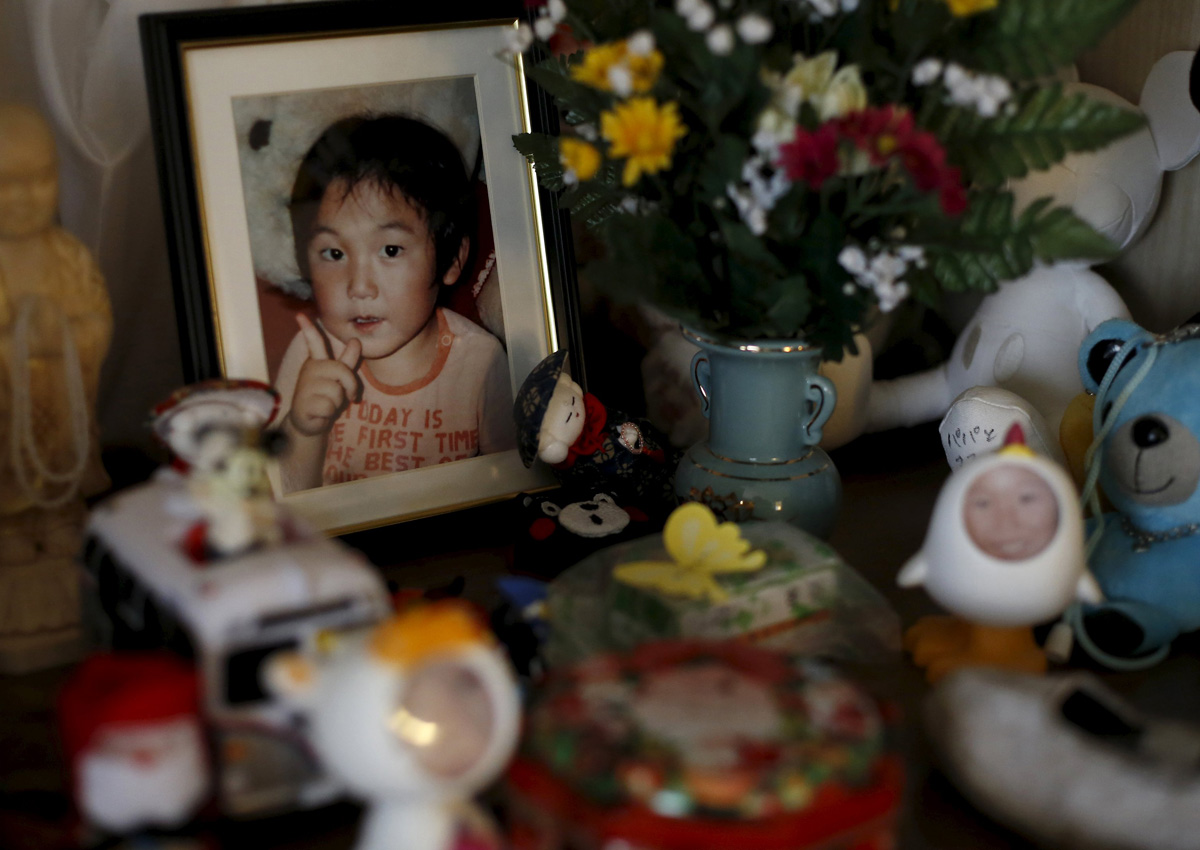
China's live-in sons-in-law struggle to fit in
After 10 years as a necessary, but ultimately unwelcome, live-in son-in-law, Ma Xuedong divorced, and moved out of his wife’s family home. The end of his unhappy marriage pleased the 37-year-old migrant construction worker, even though he had to scramble to find a place to live in Baoji, Shaanxi province.
“My previous life was too depressing,” Ma said. “It’s a feeling you will never be able to understand if you have not experienced it.”
Ma speaks for many of China’s so-called live-in sons-in-law, who marry and move in with their wives’ families, but never quite became an integral part of the family.
Their numbers are legion, a result of China’s decades-old gender imbalance, a historic preference for male offspring, enduring marriage customs and the desire of families to preserve a surname in danger of dying out in a household in which all of the children are girls.
In a traditional view of marriage in China, a woman marries a man and lives with his family, or the couple lives in their own house, bought by the husband’s family, and their children take the husband’s surname.
This custom has been upended in two ways. First, China’s gender imbalance means many men, especially in rural areas, have trouble finding wives. By the end of 2015, on the Chinese mainland, men outnumbered women by 33.66 million, making it challenging for China’s left-over men to find a partner.
Second, a poor man who cannot pay an expected “bride price” may look for a family that will pick up the cost. These men may marry a woman with no brothers, move into the woman’s family home and allow their children to carry their mother’s surname.
Even though the arrangement meets the needs of all involved, families and communities still look down on those who have no sons and opt for live-in sons-in-law to fill the void. In many cases, the resentment creates unhappiness.
Ma said he felt free after he signed his divorce agreement, although he left without any property. “They still considered me a poor guy from a remote mountain area,” Ma said.
Ma was born in Mabaozi village in Baoji, where many young men face a future as a live-in son-in-law because it is the only way for them to marry. Nearly 80 per cent of the adult men in the village became live-in sons-in-law because no women want to move to a poor, backward village, said Li Zhijun, director of Mabaozi’s villagers’ committee.
“In recent years, the bride price, money paid by bridegroom’s family to the bride’s family, increased to about 100,000 yuan (S$21,229) from 30,000 to 50,000 yuan, but no women wanted to marry into our poverty-stricken village,” Li said.
Two tragedies have highlighted the challenges live-in sons-in-law face. Earlier this year, a live-in son-in-law, surnamed Meng, in Weinan, Shaanxi province, killed his wife. He reportedly had been depressed with his circumstances since he married in 2013. Two years ago, on Nov 22, 2013, a live-in son-in-law in Huaiyang county, Henan province, killed seven members of his wife’s family, including his wife and 10-year-old son.
The unhappiness is not universal. Many live-in sons-in-law live happy, hardworking lives with good communication and affection from their wives and extended families.
Lyu Xiaoping, 36, who works in the security department of a company in Xi’an, the capital of Shaanxi province, also hails from Mabaozi. He married his wife, surnamed Yang, in 2008 and agreed to let their child carry his wife’s surname.
“My wife and I love each other very much and she takes my feelings into account as she gave our child the name Yang Lyujiang, which includes my surname,” Lyu said.
Zhang Baotong, a social and economic development expert with the Shaanxi Provincial Academy of Social Sciences, said live-in sons-in-law should learn to get along with their wives’ families and people in their communities.
Additionally, Zhang said, the genders are equal in modern society, and couples can choose their marriage styles with their own conditions.
“With the development of urbanization, more and more poor farmers will work and live in urban areas and some of them may become live-in sons-in-law as they cannot pay for houses and the other costs of marriage,” Zhang said.
“And our marriage concept should change with the development of the times to give full respect to the sons-in-law.”
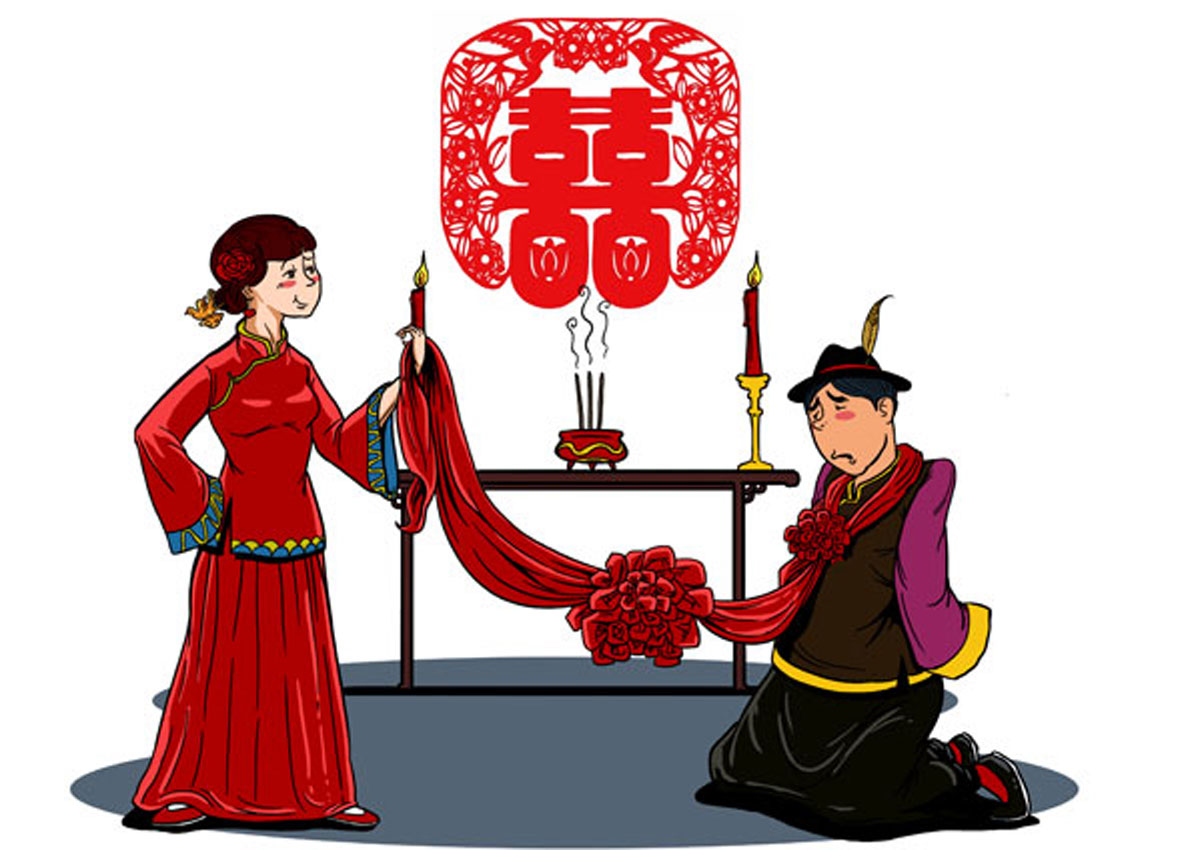
Evaluating Shanmugam’s allegations against TOC and its effects
During a two-hour debate in Parliament on the Benjamin Lim case (March 1), Home Affairs Minister K. Shanmugam levelled several serious accusations against The Online Citizen (TOC) and the Law Society’s President, Thio Shen Yi. (Disclosure: I have contributed several articles to TOC before. See below for more details.)
These accusations, however, raise more questions than they answer and are inconsistent with his own conduct. There are, therefore, serious questions about whether Mr Shanmugam has acted in good faith and whether such spurious allegations should be made in Parliament by a cabinet minister and Member of Parliament, especially given the polarising effects they have had. (See also:The real issue: TOC, Benjamin Lim or sub judice?)
Was it a “planned, orchestrated campaign”?
First, Mr Shanmugam accuses The Online Citizen of having “gone on a planned, orchestrated campaign, using falsehoods, and has published about 20 articles or so as part of its campaign.” Given that TOC is currently only run by one person, Terry Xu, the claim that this was a “planned, orchestrated campaign” is laughable. Who was Mr Xu acting in concert with?
In an editorial, TOC points out that “only four [articles] were written in-house. The rest were contributed by members of the public.” It is quite a stretch to imagine that TOC somehow managed to get so many members of the public to write in. In reality, the case of Benjamin Lim is one that is of great public interest. The letters from the public are proof that many people have are dissatisfied with police conduct in general and have serious questions about their handling of the Benjamin Lim case in particular.
To dismiss public concern as a “planned, orchestrated campaign” is convenient but foolish and disrespectful. The minister would do well to take notice rather than simply brush them aside. Even the Chinese Communist Party keeps a keen eye on the public mood.
This is not to say that TOC is perfect. It is my personal opinion that a few letters need not have been published. However, after speaking to Mr Xu, I am convinced that he has done his due diligence in checking his facts. In any case, whatever the editor’s decision, and whatever mistakes he makes, readers can read and judge for themselves whether the articles and letters are sound.
The minister, on the other hand, has made a spurious allegation and unfairly tarnished TOC’s reputation. As someone who is speaking from a position of authority he should be more careful with his words.
Did TOC put out “deliberate falsehoods”?
Second, Mr Shanmugam accuses TOC of putting out “deliberate falsehood”. By calling TOC’s factual mistakes “deliberate falsehoods,” Mr Shanmugam suggests that TOC intentionally and maliciously concocted facts that it knew to be false. This suggestion is, again, rather ludicrous. Mr Shanmugam has no evidence to suggest malice or to suggest that TOC had reason to know its statements were untrue at the time of publication.
Despite this, Mr Shanmugam insists that the truth matters. If it does, why wait five weeks before clearing the air? If indeed public faith in the police matters, why wait until things reached tipping point?
The government has many tools at its disposal which Mr Shanmugam did not use. He could have responded on behalf of the police to correct the facts and he could have asked the public to allow the Coroner’s Inquiry to be completed first. He could have even issued take-down notices or requested that TOC correct its facts.
Instead, Mr Shanmugam waited, and waited, and waited. Five weeks later, he says he will look into how to respond to inaccurate information online more quickly. One wonders where he has been these past five weeks. In fact, one wonders if Mr Shanmugam has acted in good faith by withholding vital information only to publicly chastise TOC five weeks later.
Did TOC maliciously attack the integrity of the police?
Third, Mr Shanmugam claims that TOC used the deliberate falsehoods to suggest that the police were lying, that the police intimidated Benjamin, and that the police pressured Benjamin to confess to a crime he did not commit must be considered in this context. He suggests that these untrue assertions “go to the integrity of the Police Force.”
The problem here, however, is that TOC had no way of knowing they were untrue at that time. Surely Mr Shanmugam is not suggesting that no doubts may ever be raised about the integrity of the police? Indeed, if the Coroner’s Inquiry reveals police misconduct, it will have raised serious doubts about the integrity of the police. Or does Mr Shanmugam deny the role of the media as the fourth estate?
Certainly, the media also has a responsibility to weigh the public interest value of a piece of news against the potential for causing public disorder. Not all that is newsy is worth publishing. Mr Shanmugam might have focused on this issue instead, although it is quite clearly unlikely that Singaporeans’ faith in the integrity of the police force will be so easily shaken. In any case, this is not a question I can answer for TOC.
Why the delay?
To explain this delay, Mr Shanmugam offers two reason. First, he says that he withheld comment “out of respect for the family, to give them some space and time to grieve.” This is disingenuous. The clarifications he eventually made in Parliament about what the police did on that day were in no way disrespectful. In contrast, his revelation of the details of the case during his ministerial statement were, in fact, disrespectful, for they suggested that Benjamin was not innocent even though the Coroner’s Inquiry was ongoing.
Second, Mr Shanmugam says that he has kept quiet because of the ongoing Coroner’s Inquiry. The problem, however, is that sub judice rules do not mean that all discussion on the issue must cease immediately. Facts may be provided, questions may be tabled and general issues may be debated.
Mr Shanmugam’s comments on what he saw on the CCTV recording in the lift, however, have no bearing on either maintaining the police’s integrity or the general issues. If there is ever an instance where sub judice should apply, it is to unnecessary comments like these. (Note: I say this merely as an illustration. I do not believe sub judice should be so loosely interpreted. I am also unsure if Benjamin’s guilt or innocence is a matter that falls under the Coroner’s Inquiry’s ambit.)
Moreover, Mr Shanmugam has also asserted his own finding that “there is nothing so far on the evidence to suggest that Benjamin was mistreated by the Police.” This assertion has no relation to any of the pertinent facts, nor does it have any relation to the general issues. It is moreover, a central question for the State Coroner to consider.
Whether or not Mr Shanmugam has thereby committed sub judice is not for me to say. It suffices for us to note that Mr Shanmugam seems to raise the rule when it suits him and ignores it when it doesn’t. But if there are rules, we must all be bound by them or not at all. Ministers who are responsible for the government body under investigation are precisely the ones most invested in the outcome. They should be more careful about what they say.
Polarising opposing camps
As I read comments on this issue (and make many myself), I have observed a sad outcome. Rather than encourage mutual understanding, Mr Shanmugam’s comments have tended to polarise opposing camps. This, I believe, is the result of launching an unreasonable attack against a cherished news site and against a voice of reason (Thio Shen Yi).
Rather than focus on reassuring the public that the government will continue to review its policies (something he did mention once in his statement), Mr Shanmugam has wasted what little credibility he had with the segments of society that bear a strong distrust towards government. Instead of maintaining a reasonable tone (something he began with at the start of his statement), Mr Shanmugam ended up making frivolous accusations.
It is unfortunate that the minister fails to understand the importance of having a robust media that asks tough questions and a Law Society that publicly discusses legal issues. Moreover, if we consider TOC a site that mainly appeals to disgruntled Singaporeans, most of whom make up the 30% who voted against the PAP, we ought to ask whether it is wise to alienate them even further. Is a tiny political victory over TOC worth the cost of further fragmenting society? I think not. But by making unfounded accusations against TOC, this is precisely what Mr Shanmugam has done.
Mr Shanmugam acknowledges that many who commented on the matter are “honest, reasonable people, who have genuine questions”. Indeed, I find Mr Shanmugam’s ministerial statement to be an honest and reasonable one for the most part. I also acknowledge that the undue attention placed on the allegations against TOC was exacerbated by the lazy mainstream media which were only all too happy to jump on the juicy bit of news, reporting it in isolation from the rest of the statement (which was announced in many separate parts). It is therefore a pity that an opportunity to debate the larger issues was lost in an unnecessary scuffle amidst unspecified threats against unspecified persons.
To paraphrase Mr Shanmugam’s closing words: If I may say this, at the end of the day, every Singaporean matters. It matters to the society. It matters to the government. It matters to all of us.
My fear is that Mr Shanmugam and the party he represents will never understand this.
Disclosure: I have written several articles for TOC before, three of which touched on this case. The first was a report on Thio Shen Yi’s commentary in the Singapore Law Gazette. The second was a commentary on Mr Thio’s strategy. The third was a collection of comments from readers. The first and third were named by Mr Shanmugam in a document he circulated in Parliament. The accusations he makes are baseless. I have no involvement with any other articles on the Benjamin Lim case.
Related:
The tragic case of Benjamin Lim: is Singapore’s justice system flawed?
Singapore: The legal rights we don’t have
The real issue: TOC, Benjamin Lim or sub judice?
The post Evaluating Shanmugam’s allegations against TOC and its effects appeared first on Asian Correspondent.
All eyes on March 9 solar eclipse
IT HAS been a seven-year wait but a solar eclipse is set to appear in the skies of Singapore on Wednesday.
The event will occur between 7.23am and 9.33am on Wednesday, reaching its maximum extent at 8.32am, where 86.6 per cent of the sun is expected to be covered.
Across the island, groups of students and keen astronomers have been making preparations to view the solar eclipse, which last occurred in January 2009.
Two students from the physics department of the National University of Singapore (NUS) will even travel to the town of Luwuk in central Sulawesi, Indonesia, for a better view.
Edmund Yuen, 24, and Laurentcia Arlany, 23, will take three flights to Luwuk to film the phenomenon.
If the weather permits, a live feed will be broadcasted back to Singapore at the Solar Eclipse 2016 @ NUS event.
Explaining why they would go through all that effort, Ms Laurentcia explained: “Seeing a total solar eclipse is a rare opportunity and it will be a different view from what people will see in Singapore, which is only partial.”
Solar eclipses occur when the moon travels between the sun and the earth, forming a shadow on the earth’s surface.
It is rare for the phenomenon to be seen in Singapore.
Due to the small area of the earth that the solar eclipse covers, the degree at which an eclipse is experienced differs according to location.
The Science Centre Singapore is expecting a few thousand people to turn up at its event on Wednesday, which will begin at 7.30am.
Visitors will be provided solar glasses for safe viewing.
Other viewing events open to the public include the Solar Eclipse 2016 @ NUS, which will begin the day before the eclipse with an astrophotography exhibition starting at 2pm at the Faculty of Science.
NUS has also planned a series of public lectures related to the eclipse, followed by an overnight stargazing session in the build-up to the event.
At Labrador Park, the Astronomical Society of Singapore will be hosting a viewing session at 7am.
kenggene@sph.com.sg

Get MyPaper for more stories.
Isetan 10% Off Storewide For All Customers 4 – 6 Mar 2016 | SINGPromos.com
Isetan 10% off storewide at all outlets till 6 Mar, except Orchard
Isetan 10% Off Storewide For All Customers 4 – 6 Mar 2016 | SINGPromos.com
Isetan will having a 3-days Special featuring 10% Direct Discount from 4 to 6 March at all Isetan Stores!
Basketballer Shukri stars for Dunman Secondary
Like many Singaporean youngsters, Mohamad Shukri Manaf was very much into football as a seven-year-old.
But his older brother, Khairul Ridzuan, 20, urged him to follow in his footsteps by swopping his football boots for Air…
Source link

